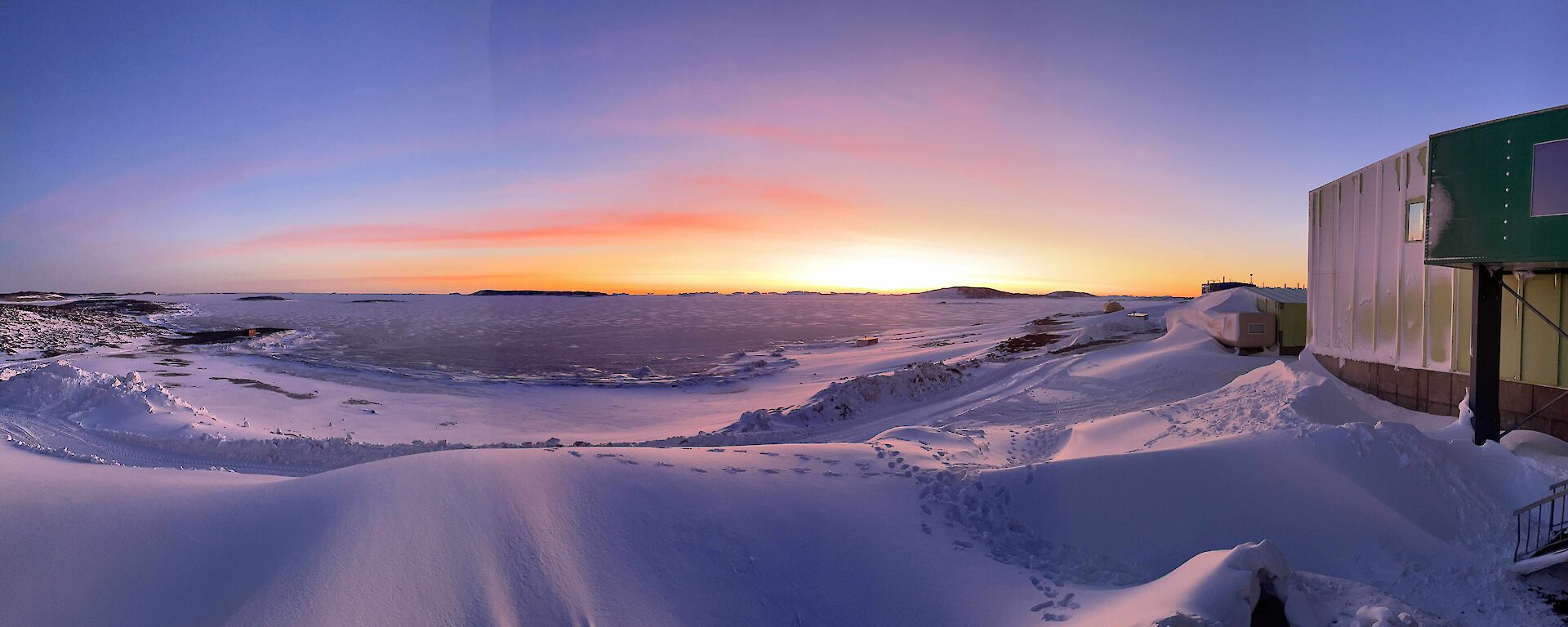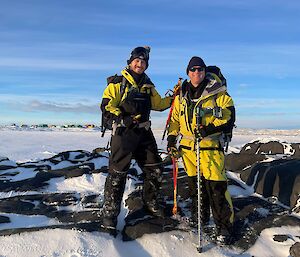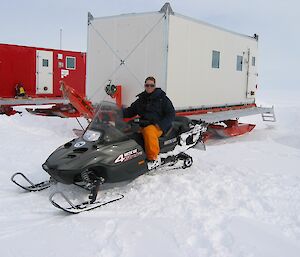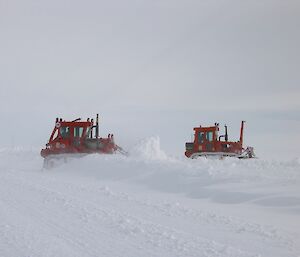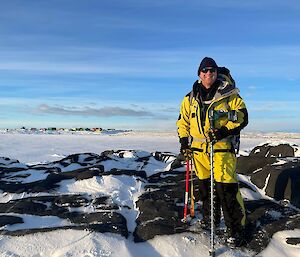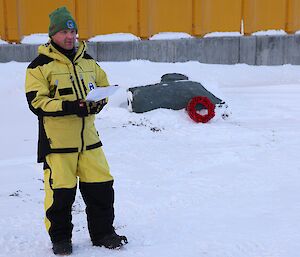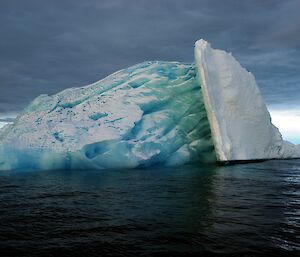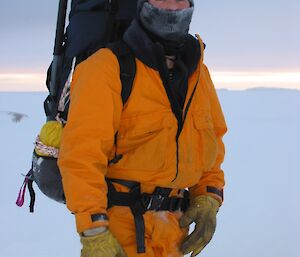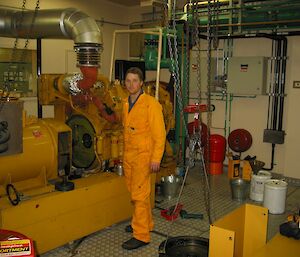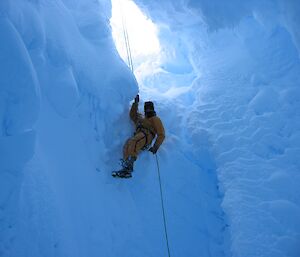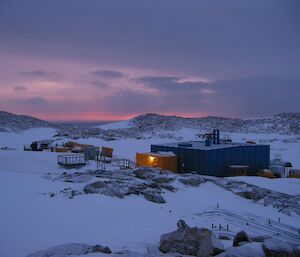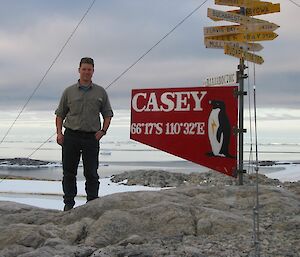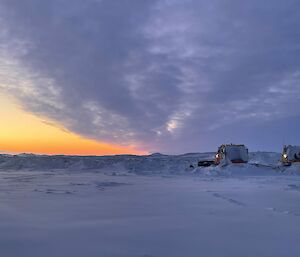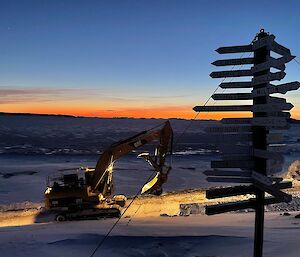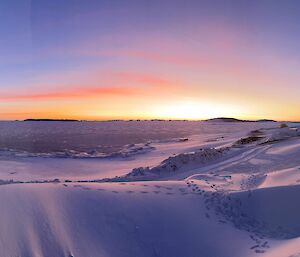Twenty years in the making!
Inspired since early high school, I have always wanted to live and work in Antarctica and I've been blessed to have the drive, ambition and opportunity to turn that dream into reality.
The training begins in Hobart with few changes over 20 years in its structure and content. This training also allows the incoming team to learn about one and other's roles and how we all play our part in the community that will be Davis Station for the next 12 months. My first voyage south, which I treated as a 'once in a lifetime' experience, was fantastic. So many memories and friendships forever created.
I arrived home to some hard times (at a personal level), but even in those times, I always had the desire to want to come back again one day. My life did eventually return to balance during which time I found myself growing from the experience. Then, unexpectedly, I found love again and built a family with my supportive wife and our two beautiful young girls.
It's not just the place but it's the discussions you have with other while on adventures. It's the walls, full of memories. It's the reunions that are held and are yet to come. They form a part of, and help to explain, the wonders of Antarctica.
A big part of the process for me is the family talking about and making the decision together about heading south again. This time around, it's made a little easier by knowing what to expect and knowing the preparations required to navigating the next 14 months away. Being from Tasmania helps considerably in the pre-departure period, allowing my daughters time to get used to me not being there while also returning from training on the weekends. This also allowed the family unit to establish a routine without dad. But others are not quite so lucky in this respect and have their own story to tell. As a first timer, I have experienced a farewell full of uncertainty with family in attendance at the wharf, saying goodbye as you head up the gangway. Those returning already know the hardships ahead from saying goodbye in a hotel room to boarding the bus at the hotel, to the wharf and and finally the ship. Their adventure is already at least partly known.
Communication with those back home was a key consideration for me in accepting the offer. It was at the forefront of my mind. My previous experience included phone calls with that classic lag which made them really hard work. Now, it's instant messages and phone calls and video calls – my daughters' preference. They spend more time on video pulling faces and looking at themselves than actually communicating with their dad, but it’s just great to see them and the way they're changing.
I found during training that I had an urge to put an application in for the role of Deputy Station Leader this time around and I was successful. in this application.The previous time at Casey Station I had the additional role of the search and rescue leader. I loved doing that role and was off exploring every aspect of the Antarctic. What you could do 20 years ago is very different to now! Things have changed in respect to what you are able to do in the field. We didn’t do anything that was not within the boundaries of our skills or training levels.
The role of Deputy Station Leader has been so rewarding. I'm so glad I pursued this avenue. I could have easily sidelined myself and chosen a different role. I would certainly do this again or go one step further if I return in the future. By being a Deputy Station Leader or a Station Leader in a small community you are naturally excluded from some community social interactions The community would probably also tend to disagree with my comments on this but sometimes you internally smile at the quietness of the room when you walk in and you know it's because of the role you play. Being in management is nothing unusual to me back home. I find myself bringing these skills to the Antarctic, sharing my knowledge when I can with expeditioners on station and in the lead up to leaving. Previously (20 years ago), when asking questions of experienced expeditioners the standard response was “you’ll find out”. I try to share my previous experience when possible. Some are open to suggestins and advice. Others, who are more headstrong, prefer to do it their way. Fair call I say! But I do like hearing the discussion of their adventures later at the dining table and enjoy a bit of a chuckle when I hear of the advice these now 'experienced' expeditioners have for the next group. Maybe I was that person the first time around! I do remember learning so much as a first timer, particularly as SAR leader.
Life as a diesel mechanic on station hasn’t changed at all in the last 20 years. We each have a role to play in keeping things running from servicing to repairing vehicles and machinery to the transfer of fuel and general support to other work areas. We run a roster to keep the powerhouse running with constant monitoring and regular servicing. By the time we leave each of the mechanics will have done the 9pm powerhouse observations 122 times, while most of the station is asleep. Everyone plays a part in keeping the station running. Our job is to keep the power going. No power means no heat, no lights, no communication, no fun! This is our part-power to the people!
My role as the Mechanical Supervisor has kept me extremely busy this year. The work completed by myself and my team doesn’t just benefit our year but benefits those to come. A lot of our focus is about this – setting the new group up with every chance of success. I hope we inspire groups to come to 'pass it on to others' Before leaving for the Antarctic the first time I remember promising myself that I would make it my intention to do my part in serving others this way. I find that thought as inspiring now as I did then. And while we are talking about inspiration, let’s not forget the splendor that is Antarctica! It's good to pause every so often to let this in. I hope I have conveyed this in a way that has others here continue with the same enthusiasm.
Clothing has definitely undergone some significant changes in the last 20 years, especially in cold weather gear. In the past, we used to wear canvas ventil overgarments and mukluk footware for fieldwork. Today, we have breathable Gore-Tex outerwear, often referred to as "yellows," and Baffin insulated footwear designed for the field. For outdoor work, we now rely on Carhartt clothing, which features a heavy-duty insulated outer shell, which are robut and greatly enhance comfort while working outside. Previously, we typically wore regular clothing with thermal underwear and overalls on top of a 'highly flammable' freezer suit which certainly did keep us from freezing!
We are just about to begin planning for and conducting resupply for the next lot of intrepid expeditioners known as the 78th ANARE. I hope they enjoy the Antarctic experience as much as I have. I’ll do all I can to make this transition the best experience I possibly can for everyone. Then it will be departure time for us, the voyage home and farewell to our community. We have developed and changed more than we realise. And the next time we see one another it will be at our five-year reunion. and will seem like it all happened just yesterday! Right now, I'm looking forward to the ship arriving in Hobart and to the big cuddles from my daughters and their stories of adventures while I have been away.
Participating in this adventure to the south and spending a year on the continent is a significant experience and one that is incredibly rewarding. However, my journey heavily relies on my true hero – my wife. She selflessly sacrifices everything to ensure our kids are ready for school while managing all the household tasks, our property, and all this while working part-time and keeping food on the table without any breaks or time for herself. Because of her unwavering support, I get to immerse myself in the beauty of Antarctica once again.
I believe my daughters will emerge from this experience with resilience and independence, inspired to seek out adventures of their own in the future. I am immensely grateful to my amazing wife for managing all of this largely on her own, with the support of friends and family.
Andrew Tueon
Station Mechanical Supervisor & Deputy Station Leader
Davis Station 2024

